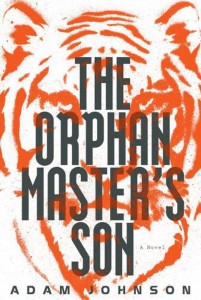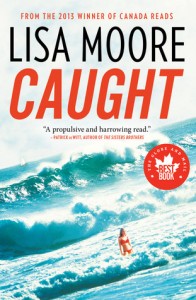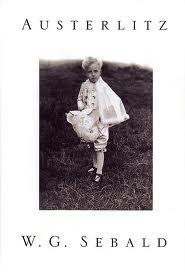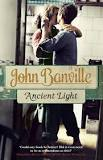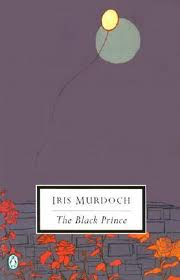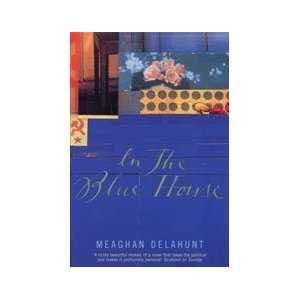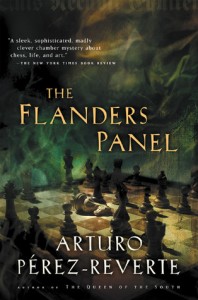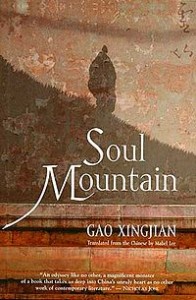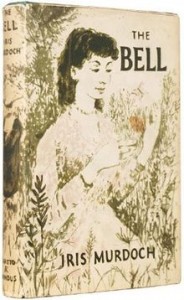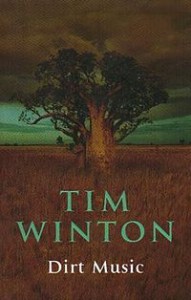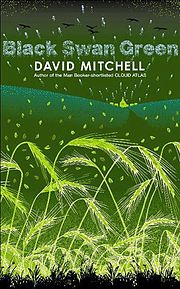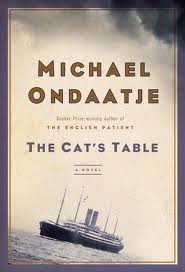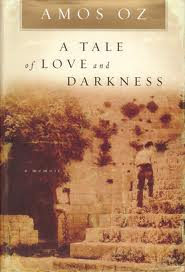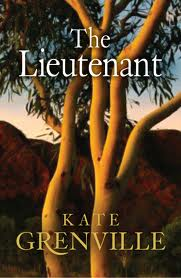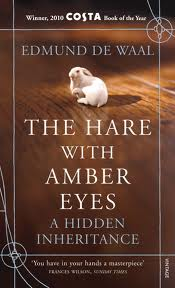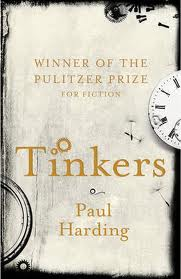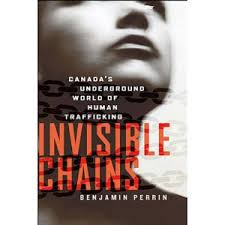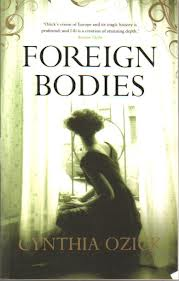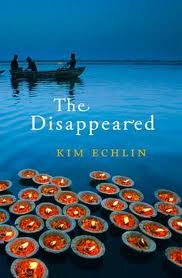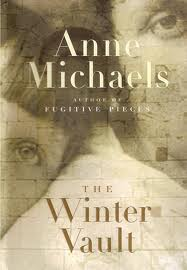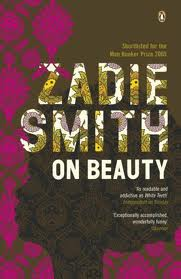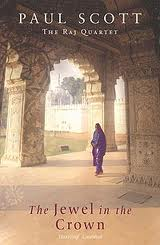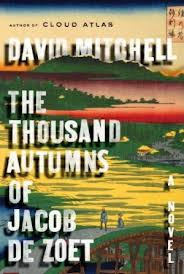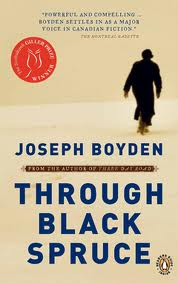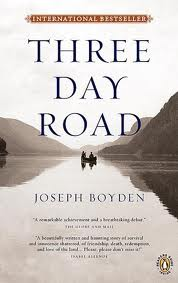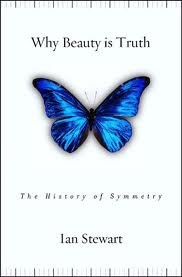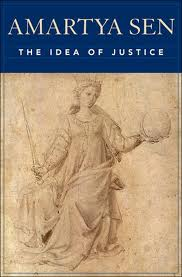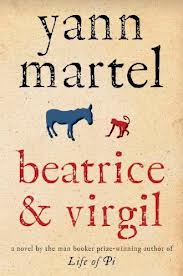Adam Johnson, The Orphan Master’s Son (Random House, 2012)
Johnson explores the horrors of life in North Korea, from a prison colony to the internal operations of the security services. Employing the tools of magic realism – perhaps the only tools that could possibly capture the insanity of the world he reveals – Johnson creates a masterpiece that, despite its grim storyline is nonetheless a paean to courage and sacrifice.
Colm Tóibín, The Testament of Mary (McClelland & Stewart, 2012).
I usually like Tóibín’s work, but was disappointed by this short novel. In my edition, it weighs in at 104 pages, but felt like hard work to slog through. Imagining Jesus’s mother as a sad, angry and guilt-ridden elderly woman, Tóibín tries to humanize her and to undermine the myths that grew around the Galilean […]
Philip Roth, Indignation (Viking Canada, 2008)
Lesser Roth is still Roth: vital, ribald, deeply human. Without the profound insight of the Zuckerman novels, Indignation is still a bildungsroman of depth and charm.
Lisa Moore, Caught (Anansi, 2013)
Moore keeps being considered for major prizes, but remains the bridesmaid, so to speak. I am not sure why, as her narratives are strong and her writing is exuberant yet remarkably precise and filled with powerful images. Caught is the story of David Slaney, an attractive young convicted drug trafficker who escapes from prison determined […]
W.G. Sebald, Austerlitz (Vintage Canada, 2001)
A world masterpiece, in my view. Sebald was a German academic who spent most of his career in the United Kingdom, where he grew tired of the rigidities of scholarly writing and turned himself into one of the most innovative “creative” writers in the English language. Austerlitz contains strong narrative flow but is also part […]
John Banville, Ancient Light (Viking, 2012)
Banville is one of my favourite contemporary novelists. He is heir to the great Irish tradition of good storytelling and lush language. But to my mind he displays a discipline that precludes sentimentality. This story is beautiful, but shocking: a young boy falls in love with the mother of his best friend and causes a […]
John Irving, In One Person (Simon & Schuster, 2012)
A brilliant novel that explores the complexities of desire and sexual identity. The protagonist, William Abbott, grows from a naïve but unusual and courageous Vermont boy to a somewhat jaded New Yorker. His sexuality is fluid, but so is that of many people he encounters in a rich life. The author and the narrator are […]
Kim Thúy, Ru (Vintage Canada, 2012)
Winner of last year’s Governor-General’s award for fiction, Ru is a lyrical account of a young woman’s journey from the elite of South Vietnam to boat person to immigrant in the cold of Quebec’s Eastern Townships. Variously gentle, sensual and brutal, the story is told in short chapters that are close to blank verse, such […]
Julian Barnes, The Sense of an Ending (Random House Canada, 2011)
Barnes is a truly great writer, but I do not think that this slim volume deserved the Man Booker Prize. Characteristic of Barnes is the precise sketching of scene and character, the sense of wistfulness that accompanies all attempts to recreate (or at least to unearth) the past. The central character, Tony, digs deep into […]
Alice Munro, Dear Life (McClelland & Stewart Doubleday Canada, 2012)
I think that Munro is, quite simply, the best writer that Canada has yet produced. Her prose is tight but fluid, and her characters rich and complex within the narrative discipline required of the short story form. Despite the extraordinary resilience of her mostly female protagonists, there is always something brittle and fragile on the […]
Vikram Seth, From Heaven Lake (Vintage Departures, 1987)
Seth is best known as the author of the sprawling novel of Indian family life, A Suitable Boy, which I loved despite its messiness. From Heaven Lake is an entirely different beast, a taut travelogue of a hitchhiking journey through China in the early 1980s. Seth was a graduate student in China, and near the […]
Iris Murdoch, The Black Prince (Penguin, 1973)
Purely by accident I have recently read three books published in 1973, two by Murdoch (she was quite prolific) and one by Gordimer (see entries for November 2012). All three novels are strongly shaped by the politics of their time, in Murdoch’s case the politics of gender relations, and in Gordimer’s the politics of African […]
Meaghan Delahunt, In the Blue House (Bloomsbury, 2001)
This book is magical, and I found it gripping. The now-standard feminist insight that “the personal is political” is given voice in this beautiful work. Ranging from the cold Kremlin bedroom of a brutal Stalin to the warm courtyard of Frieda Kahlo and Diego Rivera’s Blue House in Mexico, the spaces of this novel are […]
Arturo Pérez-Reverte, The Flanders Panel (HarperCollins, 1994)
I recently discovered this Spanish writer of devilishly clever literary mysteries. The characters are well-drawn, and the mystery revolves around a Flemish painting and the intricacies of chess. Wonderfully paced, and urgently compelling, this is a great read on a long plane ride, or at the cabin.
Gao Xingjiang, Soul Mountain (Harper Perennial, 2004)
Gao was the first Chinese author to win the Nobel Prize for Literature, although he did so from exile in France. After the publication of a work dealing in part with the massacre at Tiananmen Square, all his writings were banned in China. In awarding him the Nobel, the Committee referred to his “œuvre of […]
Iris Murdoch, The Bell (Vintage, 1999; first published in 1973)
I first began to read Murdoch when I was studying in England in the 1980s and was drawn to her complex characters; no-one is ever good or bad, everyone is an amalgam. The Bell is no exception, for here we have a religious community of deeply confused people struggling to find a way to live […]
Tim Winton, Dirt Music ( Scribner, 2001)
I discovered this book browsing in a New York bookstore. Winton is a youngish Australian whose novels have twice been shortlisted for the Man Booker prize. Dirt Music is the story of a couple of outcasts who find each other, lose each other, and against pretty remarkable odds, connect again. I have rarely read any […]
David Mitchell, Black Swan Green (Vintage Canada, 2007)
Mitchell is probably best known for Cloud Atlas, now, as they say, “a major motion picture.” I thought that The Thousand Autumns of Jacob de Zoet (2010) was fabulous. Mitchell’s diversity of subject matter and style is remarkable. In Black Swan Green he writes in the voice of thirteen-year-old Jason Tyler, who lives in a […]
Nadine Gordimer, A Guest of Honour (Penguin, 1973)
Gordimer’s writing is simply brilliant, but her stories always leave me with a profound sense of sadness. Winner of the Nobel Prize in 1991, Gordimer is closely associated with the anti-apartheid struggle in South Africa. But she is no naïve optimist! A Guest of Honour is the story of a colonial-era British civil servant, Colonel […]
Douglas Coupland, Marshall McLuhan (Penguin Canada, 2009)
Part of a series on “extraordinary Canadians,” I was drawn to this brief biography because it coincided with the 100th anniversary of McLuhan’s birth, and because I thought it a stroke of genius to ask Coupland to write on McLuhan. The result is a fresh, insightful and at times psychedelic exploration of the McLuhan era. […]
Olivia Manning, School for Love (Arrow, 2001)
First published in 1951, this novel is by one of Britain’s important mid-twentieth century writers, who is best known for The Balkan Trilogy, a compelling account of life in Cold War Bucharest. School for Love is set in Jerusalem, and traces the growing into adult sensibility of the teen-age orphan, Felix. He has led a […]
Kathleen Winter, Annabel (Anansi, 2010)
An extraordinarily lyrical novel set in Labrador, St John’s and Boston, the book traces the early life experience of Wayne Blake, a person born with the sexual organs of both man and woman. Marked by a generosity of spirit, and an openness to the complexities of identity, the story follows Wayne’s father as he tries […]
Esi Edugyan, Half Blood Blues (Thomas Allen, 2011)
Winner of the 2011 Giller Prize, this ambitious novel is set principally in the months leading up to the German occupation of Paris during the Second World War. Moving back and forth in time, and spanning settings in Baltimore, Berlin and Paris, the narrative focusses upon a jazz combo of African-American and German musicians. They […]
Alan Hollinghurst, A Stranger’s Child (Picador, 2011)
Hollinghurst burst onto the literary scene with a pair of acutely observed novels, The Swimming Pool Library and The Line of Beauty, the latter winning the Man Booker Prize in 2004. Both captured the oddly mixed flavour of excess and despair that marked late-twentieth century British society, and both contained much more graphic depictions of […]
Michael Ondaatje, The Cat’s Table (McClelland & Stewart, 2011)
Both autobiographical and fully imagined, this charming novel is Ondaatje at his most playful. Set on a ship travelling from Ceylon to England in the 1950s, the story is told by a writer who is now famous but who was once a passenger on a similar vessel, as a small boy, largely overlooked by those […]
Dave Eggers, Zeitoun (Vintage Canada, 2010)
I was first introduced to Eggers through his zany family memoir, A Heartbreaking Work of Staggering Genius, one of the funniest books I have read. Zeitoun is the history of another family, tested beyond all reason by circumstance and bad public policy. The title character is a Syrian-American, married to a “white” Muslim convert. Together […]
Saul Bellow, The Dean’s December (Penguin Books, 1982)
Born in Lachine, Quebec, Bellow became the great chronicler of mid-twentieth century American (especially Chicago) life. Winner of the Nobel Prize for Literature in 1976, his later writing becomes elegiac, and strongly focused on intimations of mortality. The Dean’s December, published in 1982, tells the story of a dyspeptic but relatively happily married dean of […]
Ian Buruma, Murder in Amsterdam (Penguin Books, 2006)
One of the most difficult and troubling books I have ever read. Buruma grew up in Holland, but is half-British and has spent much of his recent years in the USA. He returns to Holland in 2004 to investigate the reasons that may have prompted the murder of controversial Dutch filmmaker, Theo Van Gogh. Van […]
Patrick O’Brian, Master and Commander (Harper Collins, 2002)
O’Brian is often described as the greatest of historical novelists, mostly because of his superb research and encyclopedic knowledge of the Royal Navy of the eighteenth and early nineteenth centuries. Although he can sometimes descend into excruciating detail (especially about the sails on a square-rigged ship!), what marks O’Brian’s greatness is his gift for rich […]
Amos Oz, A Tale of Love and Darkness (Harcourt Inc., 2005)
A powerful and lyrical memoir by one of Israel and the world’s great novelists. Probably best known for My Michael and Black Box, Oz tells a story of growing up in the 1940s and 50s in Jerusalem. One experiences a sense of both claustrophobic rigidity and utter liberation. His silent father was also a great […]
Kate Grenville, The Lieutenant (Harper Collins, 2008)
An exploration of the possibilities and impossibilities of cross cultural communication. Set at the moment of first contact between English naval officers and aborigines in Australia (1788), this beautiful novel is at once a bildungsroman, an adventure story, and a lyrical reflection on language. The relationship that evolves between Lieutenant Daniel Rooke and the child […]
Edmund de Waal, The Hare With Amber Eyes (Chatto & Windus, 2010)
The most exquisite memoire I have ever read. Mr. de Waal, a distinguished English potter, traces his family history by exploring the movement of a collection of Japanese netsuke from late 19th century Paris, to Vienna at the Anschluss, to Tokyo, to London. The collection is first bought by Charles Ephrussi, the model for Proust’s […]
Paul Harding, Tinkers (Harper Collins, 2009)
As he lies dying, surrounded by his family, an amateur clock-repairer hallucinates about his own father who was largely absent. Astonishing writing that conjures up rural Maine in the 19th century, in all its harsh beauty. The characters are vivid, the central theme compelling: none of us can quite grasp the entirety of who we […]
Benjamin Perrin, Invisible Chains: Canada’s Underground World of Human Trafficking (Viking Canada, 2010)
A personal journey of civic engagement. A study of Canadians’ horrible contributions to human trafficking at home and abroad. A plea for concerted national and international action. Although the media tends to focus on trafficking for sexual exploitation, the even wider issue of forced labour should cause us equal concern. Gripping.
Cynthia Ozick, Foreign Bodies (houghton Mifflin Harcourt, 2010)
In a clever thematic inversion of James’s The Ambassadors, Ozick describes escaping children, a controlling father, and a bewildered aunt commisioned – much against her will – to sort out family troubles. All of the characters are deeply selfish, which makes it hard to feel much empathy, but the story holds intriguing, sometimes tragic, twists.
Kim Echlin, The Disappeared (Penguin Canada, 2009)
A lyrical exploration of family relationships created and undone in war. Searching for the ‘truth’ about one’s closest friends turns out to be heart-wrenching. Set convincingly in both Montreal and Cambodia, this is a delicate and moving portrayal of connection and loss.
Anne Michaels, The Winter Vault (McClelland & Stewart, 2009)
Canada’s and one of the world’s great stylists of language, Michaels is best known for the deeply moving Fugitive Pieces. The breadth of this book is remarkable, moving as it does between the flooding towns of the Saint Lawrence as the Seaway is built, to Montreal to Toronto to Egypt’s Valley of the Kings as […]
Zadie Smith, On Beauty (Hamish Hamilton, 2005)
A romp through the politics of race and academic life. Brilliant riffs on affirmative action, fundamentalist Christianity and English usage, through explorations of the increasingly intertwined lives of two families where the fathers, two professors who work in the same area, detest one another. A hilarious and sad confrontation scene in a faculty meeting. Shortlisted […]
Paul Scott, The Jewel in the Crown (Heinemann, 1966)
An honest effort to grapple with the harsh complexities of India, and a sympathetic account of people struggling to cope with, and some to overcome, cultural difference. The characters of the British Raj are drawn with sensitivity and compassion, and the story is utterly gripping. A variety of narrative voices give the novel extraordinary range […]
David Mitchell, The Thousand Autumns of Jacob de Zoet (Random House, 2010)
Interweaving the history of the Dutch East India Company, Japan of the Shoguns and the mysteries of a Buddhist monastery, Mitchell tells a moving story of unrequited love. The upright and humourless clerk, Jacob de Zoet, is drawn into intrigue and corruption, and strives to find a way to escape while helping a fascinating women […]
Joseph Boyden, Through Black Spruce (Penguin Canada, 2008)
Xavier Bird’s son, Will, and grand-niece, Annie, struggle to find a way out of the violence that threatens to destroy their lives. A missing sister. Alcohol addiction. Drug dealing. Brutal assaults. But amidst it all, the promise that family and traditional learning can bring redemption. Striking portrays of life in the bush and in the […]
Joseph Boyden, Three Day Road (Penguin Canada, 2005)
A remarkable story, the first part in a planned trilogy, that draws us into generations of the Bird and Whiskeyjack families. Two young Cree snipers, Xavier Bird and Elijah Weesageechak (called Whiskeyjack by his white soldier buddies) are formed and deformed by the horrors of the First World War. One tries to find redemption in […]
Ian Stewart, Why Beauty Is Truth (Basic Books, 2007)
A distinguished mathematician explains the fundamental concept of symmetry by tracing the history of mathematical thought through the lives of key theorists from Babylonian to modern times. Some difficult equations, but Stewart makes the story lively and he does not expect much background knowledge. A surprisingly good read.
Amartya Sen, The Idea of Justice (Harvard University Press, 2009)
Building on John Rawls enormously influential explanation of justice, the Nobel prize-winning economist undertakes to remove justice from the realm of the ideal and to place it in the real life of societies trying to develop and to provide better lives for millions of people. Challenging and brilliant.
Yann Martel, Beatrice and Virgil (Alfred A. Knopf, 2010)
A taxidermist is writing a play about human attacks on animal biodiversity, using the Holocaust as an allegory. Can any author, no matter how gifted, deal creatively with the hardest and cruelest moments of twentieth-century history? One thing is certain: Martel is courageous.
